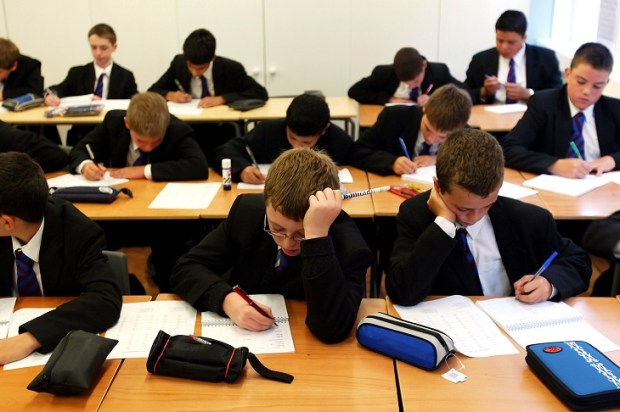News of the Russian Olympic drug scandal has reached the ears of the media and is being rightly exposed, but flying under the radar is another Russian story, one of tragic Dostoevskian proportions.
Two weeks ago President Vladimir Putin signed into law measures outlawing evangelistic activities of religious groups in Russia. Under the guise of ‘anti-terrorism’, the Russian Government has banned churches from communicating their beliefs outside of sites officially designated by the state.
Charges can now be made against individuals for inviting people to church, for distributing literature in the community, and for presenting in peaceful ways, a persuasive case for one’s religious convictions.
Chair of the United States Commission on International Religious Freedom, Thomas J. Reese, has said,
“These deeply flawed anti-terrorism measures will buttress the Russian government’s war against human rights and religious freedom…They will make it easier for Russian authorities to repress religious communities, stifle peaceful dissent, and detain and imprison people. Neither these measures nor the currently existing anti-extremism law meet international human rights and religious freedom standards.”
Thousands of Churches across Russia are holding prayer vigils, but with little hope of seeing the Government return to any sense of reasonableness.
Most Australians will recognise these measures as alarming, draconian, and unbefitting of any nation claiming to be a pluralist society and a liberal democracy. Whether Russia would consider itself to be these things is disputable, but surely we would never witness such restrictions here in Australia?
We must recognise that Putin-like voices can also be found in Australia, on both poles of politics. The ideology is different, but the desire to control and limit religion is similar. In the media, politics, and education there is a growing murmuring, arguing that religion is tolerable in private, but has no place in public discourse, and certainly not in politics and in our schools. For example, both the Greens and the Sex Party are famed for policies that will reduce religious freedoms, and the current Victorian Government has done more to legislate against religious freedoms than any other Australian Government in living memory.
Then there is the now infamous example of Section 17 of the Tasmanian Anti-Discrimination Act, and how it was used to attack the Catholic Archbishop, Julian Porteous. What was so intolerable that the weight of law was required to come down on him? Well, Porteous published a pamphlet for Catholics, explaining a view of marriage that is congruent not only with Catholic beliefs, but which also reflects the legal definition of marriage in Australia. [Text Wrapping Break]
It is possible to prohibit religious speech through law, and it possible to achieve the same goal by bullying and slandering those who hold religious convictions. In the lead up to the Federal election there were notable voices telling the Australian people that public dialogue about the Marriage Act was impossible. Ironically, the very same people proved their point as they employed insults and derogatory words against those who dared suggest a plebiscite might be a good idea.
Secularists want us to believe that the public space is a pure place free from ideology, which of course they define as atheistic humanism. This could not be further from the truth, for there is no public vacuum, free from assumptions and beliefs informed by worldviews. The Australian public space is pluralist, and invites people to contribute, not by leaving their convictions and consciences at home, but by bringing them to the conversation. The epistemic and moral superiority of secular humanism is as mythical as the Pokémon, and yet we are chasing after it.
There is a distinction established in Australia’s Constitution between the secular state and religious institutions, but it does not denude the role of religion in public, but simply protects the State from either being controlled by or instituting any single Christian denomination.
Section 116 reads, “The Commonwealth shall not make any law for establishing any religion, or for imposing any religious observance, or for prohibiting the free exercise of any religion, and no religious test shall be required as a qualification for any office or public trust under the Commonwealth.”
This Australian dichotomy between government and religion is easily sustained in a Christian worldview, given that the distinction exists because of the Christian worldview. For the Christian, Jesus is Lord over all of life but the church is not the state and the state is not the church. There is an entity called the ‘Church of England’, which is the unfortunate outcome of various historical quirks, rather than theological necessity, but it is not the situation we have here in Australia. To what extent other religions can manage this distinction, is a topic worth exploring.
During the recent Symposium on ‘Freedom of Speech’, hosted by Mentone Baptist Church, the new member of Goldstein, Tim Wilson, remarked, “We need a lived culture of open discussion”.
It was as though someone had finally solved the congestion issues on Melbourne’s roads. Mr Wilson gave example to this value, by addressing the marriage debate, saying, “I don’t think we can have a constructive conversation around the marriage of same-sex couples until both sides can say what they truly think.” I couldn’t agree with him more.
Darkness is descending on Russia. For so much of her history the Russian people have been oppressed by one totalitarian rule or another. The light of democracy that dawned late last century is now disappearing over this vast steppe. Australians can assume the naive posture of ‘never us’, but the seeds of religious intolerance are already planted, and without due care it will grow and choke free speech.
Not imposition but persuasion; that is the mark of a true liberal democracy. Progress cannot be achieved when the State bullies its own citizens and stifles disagreement; it only further polarises people. We would do well to heed Tim Wilson’s exhortation. More than that, perhaps we should return to the words of the Christian Scriptures’ that many Australians now deem as irrelevant, ‘speak truth in love’. Imagine, grounding a society upon that ethic?
Murray Campbell is Lead Pastor at Mentone Baptist Church. He Tweets at @MurrayJCampbell
Got something to add? Join the discussion and comment below.
Get 10 issues for just $10
Subscribe to The Spectator Australia today for the next 10 magazine issues, plus full online access, for just $10.

























Comments
Don't miss out
Join the conversation with other Spectator Australia readers. Subscribe to leave a comment.
SUBSCRIBEAlready a subscriber? Log in